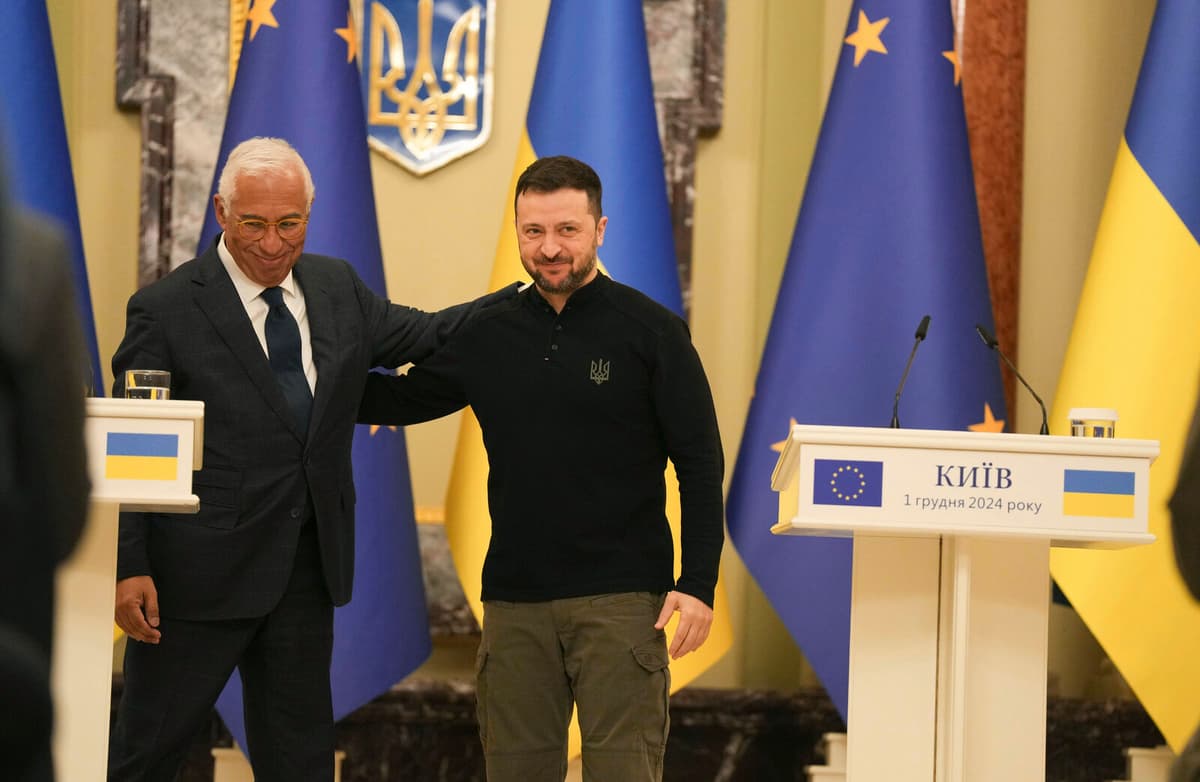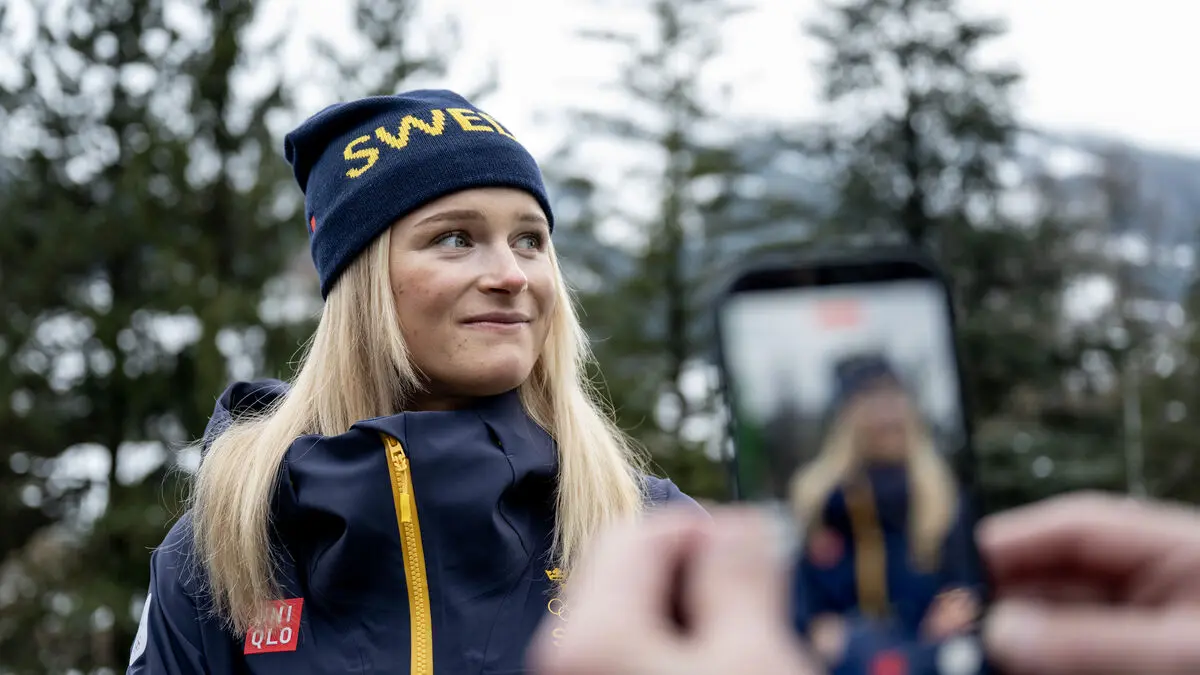According to Zelenskyj, possible talks about a ceasefire would need to include representatives from the EU and Nato, since the country sees its future security in the union and defense alliance.
Ukraine would also need more weapons to defend itself with, before such talks would be relevant, says the president. He says, however, that he has difficulty seeing what such negotiations would focus on, and that Ukraine "would never legally recognize any Russian occupation of our territory".
"How to secure peace?"
Earlier in the week, Zelenskyj opened up to not immediately demanding the return of Russian-occupied Ukrainian areas in exchange for security guarantees from Nato.
An invitation for Ukraine to join Nato is a necessity for our survival, says the Ukrainian president at a press conference on Sunday.
Nato diplomats have, however, been skeptical about Ukraine being welcomed into the military alliance.
The EU's foreign chief Kaja Kallas does not rule out that the EU could send peacekeeping forces in the event of a ceasefire, but she thinks that the strongest security guarantees would be a Nato membership.
We must definitely discuss this. If Ukraine decides to draw the line somewhere, how can we secure peace so that Putin doesn't go further?
"Very serious"
Kaja Kallas and the European Council's President António Costa visited Kyiv on Sunday to show their support for Ukraine. The visit was made on the same day as the new EU Commission – the EU's "government" – formally takes office and is thus a strong symbolic act.
Costa has, during the visit, reaffirmed the EU's continued promised support for Ukraine.
The meeting comes at a time when Ukraine is steadily losing ground to Russia's slowly grinding offensive, and when future support from the US is highly uncertain with the new Trump administration taking office. Moreover, winter has arrived, and Russia has again directed attacks against Ukrainian power supply.
The situation in Ukraine is very, very serious. But it is clear that it comes at a very high price for Russia as well, says Kallas, who previously was Estonia's prime minister.






